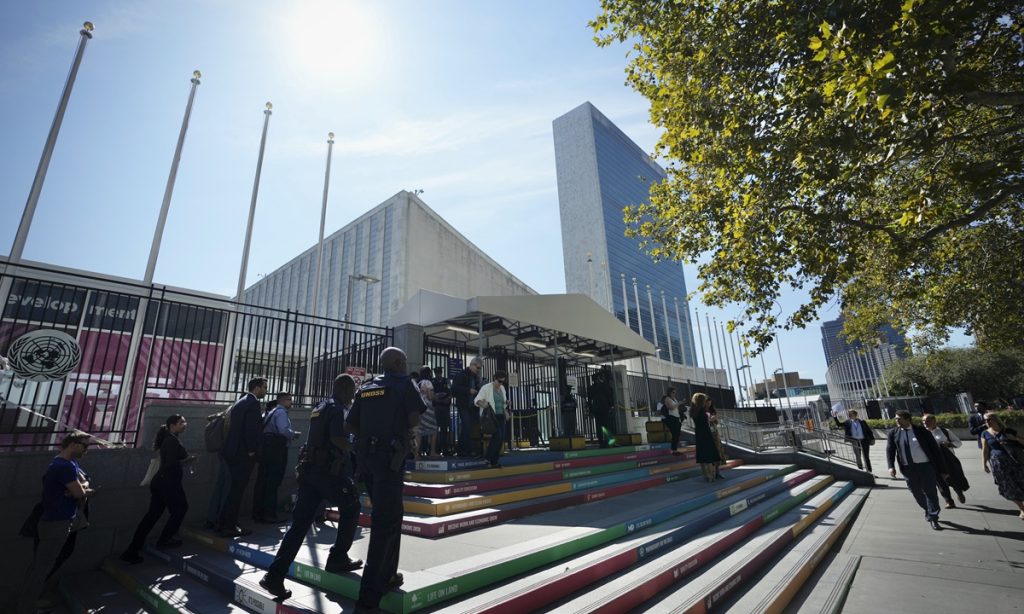US agenda differs greatly from interest of Global South

The United Nations General Assembly (UNGA) is currently in session, gathering all approximately 190 member states to address critical global issues and matters concerning each member state. UNGA serves as the most representative voice of the global international community, with developing countries, or member states of the Global South, holding a significant numerical advantage.
The concept of the "Global South" is a relatively recent phenomenon that encompasses all developing countries, including what were previously referred to as emerging markets. In a sense, it stands in contrast to the developed north, or the developed world, predominantly comprising OECD member states, for instance.
However, there is a danger that the US sometimes categorizes China as a developed country, artificially and arbitrarily, suggesting that China should not be considered part of the Global South. In reality, China is a vital member of the Global South and represents the fundamental interests of developing countries worldwide in many ways.
Given the substantial numerical advantage of the Global South, I believe the US and developed countries can't dominate the UNGA. The US may do whatever it wants, for example, to attempt to hijack the agenda or promote its own topics. However, members of the Global South possess independent perspectives and can formulate their own conclusions. They will genuinely champion issues they care about and vigorously defend their legitimate interests, which may not align with the interests promoted by the US or the developed countries as a group. The separate agenda pursued by the US differs significantly from the challenges and opportunities faced by developing countries. The US prioritizes "America First" and sometimes discriminates against other states, particularly countries in the Global South, or is unwilling to promote the legitimate interests of developing countries worldwide.
The reason why Western-led groups struggle to address concerns of countries in the Global South, such as climate change and other issues, primarily lies in the fundamental contrast in interests between developed countries and the developing world, or the Global South. For instance, when it comes to climate change, what China emphasizes is on the principle of common but differentiated responsibilities. This means that humanity should collectively address the climate crisis with a shared goal and unwavering commitment. Given that developed countries have collectively contributed significantly more to pollution than any of the developing world's members, it is completely reasonable that they contribute more to assist the international community in mitigating the adverse impacts of climate change. However, many developed countries are coming up with all sorts of excuses to delay their so-called commitments or even cancel their obligations.
One of the dilemmas facing humanity is that while China is very eager to promote peace, stability, development and poverty alleviation, not only within its borders but globally, the US appears committed to fostering a cold war mentality, dividing countries into opposing blocs, and even using the threat of war as a means to achieve political goals that they cannot attain through other means.
For example, it is evident that the US has important plans for India. It attempts to bind India onto the bandwagon of the US with their anti-China policy and hostility toward China. However, decision-makers in Washington may have seriously misjudged India's commitment to foreign policy independence as a great and proud nation. India stands as one of the world's great nations, with a rich history of civilization that has endured for millennia. Looking ahead, India's population is projected to be the largest globally for many decades to come. This reality carries great expectations that India will do the right thing in promoting peace, stability and cooperation rather than betting on a cold war or hot war, or giving up its independence to align its fate with countries like the US.
From the Chinese perspective, we do not want to compete with anyone. We just want to promote the merits of countries, do the right thing and advocate for globalization, fair trade, unrestricted exchange of goods, services, ideas and people across national boundaries. China respects all countries as equals, regardless of their size, rather than manhandling them.
Humanity stands at a significant crossroads, facing the choice between peace, stability and development, or the path of war, confrontation and conflict. China will continue to do what it believes to be right and promote the legitimate interests, not only of China but also of Global South member states in general. I hope that UNGA will serve as a crucial platform for countries from various perspectives to express their views and that any conflicts of interest can be peacefully resolved through diplomacy rather than escalating tensions to the point of no return.